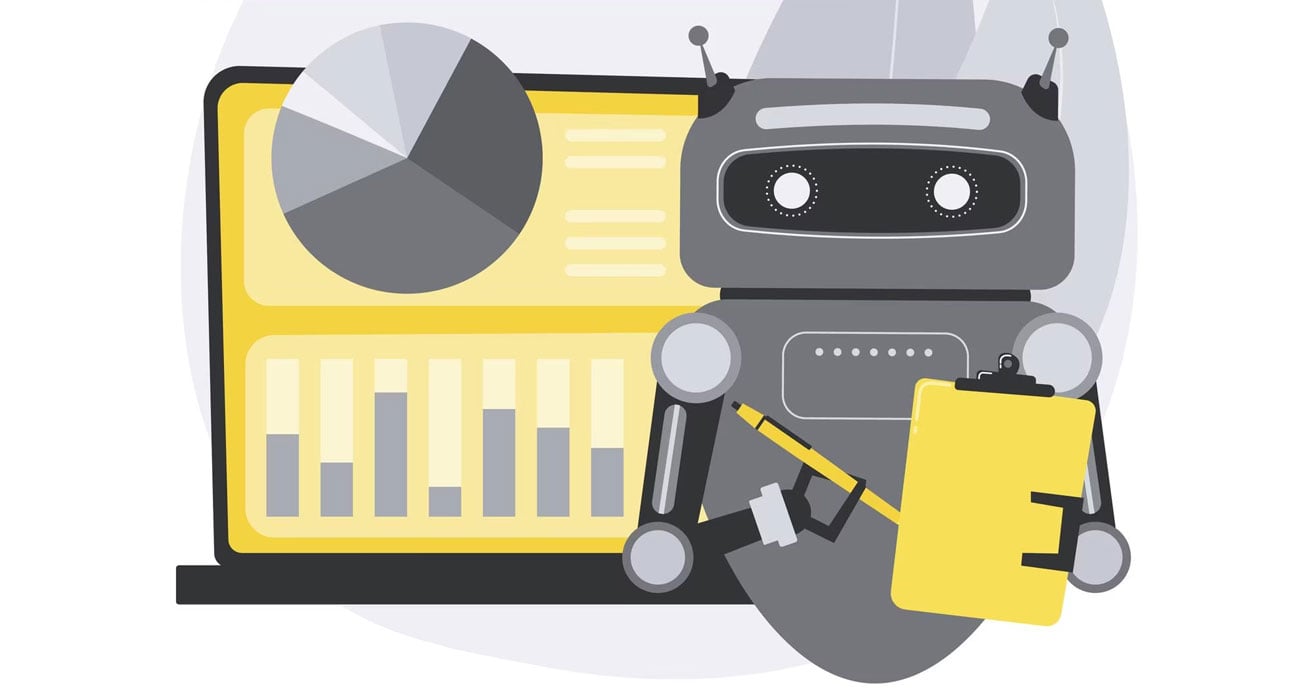Artificial Intelligence (AI) has revolutionized various industries, including Ecommerce. Its influence on Ecommerce businesses is undeniable, making it essential to understand the benefits and practical applications of AI in this sector.

What is Artificial Intelligence in Ecommerce?
Understanding the role of AI in the Ecommerce Industry
AI’s role in the Ecommerce industry is to enhance and streamline various processes. From improving customer service to optimizing inventory management, AI is transforming the way Ecommerce businesses operate.
How AI is Used in Ecommerce Platforms
AI is used in Ecommerce platforms to analyze customer data, predict behaviors, and offer personalized experiences. Additionally, AI is employed for fraud detection, chatbots, and recommendation systems, enhancing the overall Ecommerce experience.
Implementing AI into Ecommerce Business
Integrating AI into Ecommerce businesses involves leveraging AI algorithms and technologies to automate tasks, make data-driven decisions, and enhance operational efficiency across the Ecommerce website.
How Does AI Benefit Ecommerce Businesses?

Improving the Shopping Experience with AI
AI enhances the shopping experience by providing personalized product recommendations, predictive search results, and efficient customer support through AI-powered chatbots, ultimately increasing customer satisfaction and loyalty.
Utilizing AI for Product Recommendations in Ecommerce
AI’s ability to understand customer preferences enables Ecommerce businesses to offer highly relevant product recommendations, effectively driving sales and increasing average order values.
AI Solutions for Ecommerce Business Decisions
AI assists Ecommerce businesses in making data-driven decisions, optimizing pricing strategies, demand forecasting, and inventory management, ultimately leading to improved operational efficiency and profitability.
What are the Use Cases of AI in Ecommerce?
AI’s Role in Enhancing the Online Retailer Experience
AI optimizes the online retailer experience by analyzing customer data to understand behaviors, preferences, and purchasing patterns, allowing Ecommerce businesses to tailor their offerings and marketing strategies accordingly.
Utilizing Machine Learning for Ecommerce Business
Machine learning, a subset of AI, is utilized in Ecommerce for various applications, including customer segmentation, fraud detection, and personalized marketing, ultimately enhancing the competitiveness of Ecommerce businesses.
The Power of AI Tools in Ecommerce
AI tools such as predictive analytics, recommendation engines, and sentiment analysis are powerful assets for Ecommerce businesses, empowering them to understand and cater to customer needs more effectively.
How Can AI Help Ecommerce Businesses?
AI’s Impact on Online Stores and Online Shopping
AI impacts online stores and online shopping by providing a seamless, personalized, and efficient experience for customers, leading to increased conversions, higher customer retention, and improved brand loyalty.
Generative AI and its Application in Ecommerce
Generative AI applications, such as creating unique product descriptions and images, offer Ecommerce businesses the opportunity to stand out by providing distinctive and engaging content, ultimately attracting and retaining more customers.
Implementing AI for Enhanced User Experience in Ecommerce
By implementing AI-driven tools and technologies, Ecommerce businesses can create an enhanced user experience through personalized recommendations, efficient customer service, and dynamic pricing strategies, ultimately improving customer satisfaction and loyalty.
What are the Top Benefits of Using AI in Ecommerce?
The Remarkable Advantages of AI for Online Businesses
The benefits of using AI in Ecommerce include improved operational efficiency, enhanced customer experiences, increased sales, personalized marketing, and the ability to make strategic business decisions based on data-driven insights.
AI’s Contribution to Boosting Sales in Ecommerce
AI contributes to boosting sales in Ecommerce by understanding customer behaviors, optimizing product recommendations, and offering targeted promotions, ultimately increasing conversion rates and revenue for Ecommerce businesses.
The Future of AI in Revolutionizing the Ecommerce Industry
The future of AI in Ecommerce holds promising advancements, including more sophisticated AI applications, enhanced customer personalization, and the seamless integration of AI into various Ecommerce operations, further revolutionizing the industry.
Top 5 Practical Applications
1. Virtual Voice Assistants and Chatbots

When customers go to a shop, a shopkeeper or sales associate helps them find what they want. This makes the shopping experience quick and easy for customers. It has been difficult to have this convenience in online shopping, but not anymore. Now, AI chatbots and voice assistants are so advanced that they can understand customers’ queries and be as helpful as human sales associates. Moreover, they can service your customers 24 hours a day, 7 days a week and in multiple time zones and languages. AI technology is bridging the gap between physical and online shopping and boosting the scalability of ecommerce businesses worldwide. Since customers are already familiar with apps like Google Assistant, Apple’s Siri and Amazon’s Alexa, they are comfortable interacting with artificial intelligence in ecommerce, too.
2. Personalized Product Recommendations

Personalization is no more an additional or special provision. Today, customers expect it whenever and wherever they shop. According to Salesforce, 66% of customers expect companies to understand their unique needs and expectations. It is unquestionably impossible to personalize shopping experiences for individual customers manually. But now, AI in ecommerce can learn about multiple individual customers by analyzing their actions on an ecommerce platform and the personal information they share with the website. Using a mathematical computer-generated algorithm based on various historic data points, the same AI technology can determine an individual customer’s likes and preferences and recommend products to the customer, they are more likely interested in purchasing. This can radically boost sales and significantly increase the customer’s time on the ecommerce platform.
3. Demand Forecasting and Price Optimization

By analyzing customer behavior in real time, tools of artificial intelligence in ecommerce can actually predict future demands to help you modify your offerings better. And even if you have a plethora of products, AI tools can optimize their individual prices automatically as per their demand. They can even adjust prices by accounting for data points like the weather, the season, the time of the day and the day of the week. It’s called dynamic pricing, and it is now more possible and effective than ever, thanks to smarter AI in ecommerce. Such AI tools are therefore being extensively used by airlines, hotels, booking portals and other industries to increase their revenue with dynamic pricing.
4. Enhanced Social Listening

Knowing what your customers think about your brand, product or service is crucial for solving their problems and making them stay loyal to your brand. Social listening is the monitoring and analysis of the mentions your brand, product or service gets on social media platforms. Simply put, it is the act of listening and understanding what people say about your brand, product or service online. It helps you to not only improve your actual product or service, but also come up with a more effective marketing strategy for it. One of the remarkable benefits of AI in ecommerce, is that AI can do it for you and give you insightful data, which you can use to make the right product decisions and create effective marketing strategies.
5. Seamless Ad Placement in AR Navigation
AR wayfinding or indoor navigation for places like malls, exhibitions, expos, airports, stadiums and museums, is only going to be increasingly common due services like ARway.ai by Nextech3D.ai, which make the most of mobile AR technology as well as AI.
 Visitors can use the app or app integrations created by ARway.ai to view their surroundings in augmented reality on their smartphone screens and have virtual elements like arrows guiding them to the location they wish to reach. They can also opt for preset guided tours that would take them through a fixed path, covering all the major attractions at a venue.
Visitors can use the app or app integrations created by ARway.ai to view their surroundings in augmented reality on their smartphone screens and have virtual elements like arrows guiding them to the location they wish to reach. They can also opt for preset guided tours that would take them through a fixed path, covering all the major attractions at a venue.
How is this helpful as AI in ecommerce? ARway.ai also enables you, the AR map customizer, to place virtual ads at various locations on the map or checkpoints of a guided tour. Visitors can see those virtual ads popping up in the augmented reality they see on their smartphone screen through its video camera.
They can even make purchases online after tapping on the ads, bringing ecommerce into the picture.
Conclusion
All of this has been made possible only by artificial intelligence in ecommerce. And the best time to make the most of the benefits of AI in ecommerce, is now.

